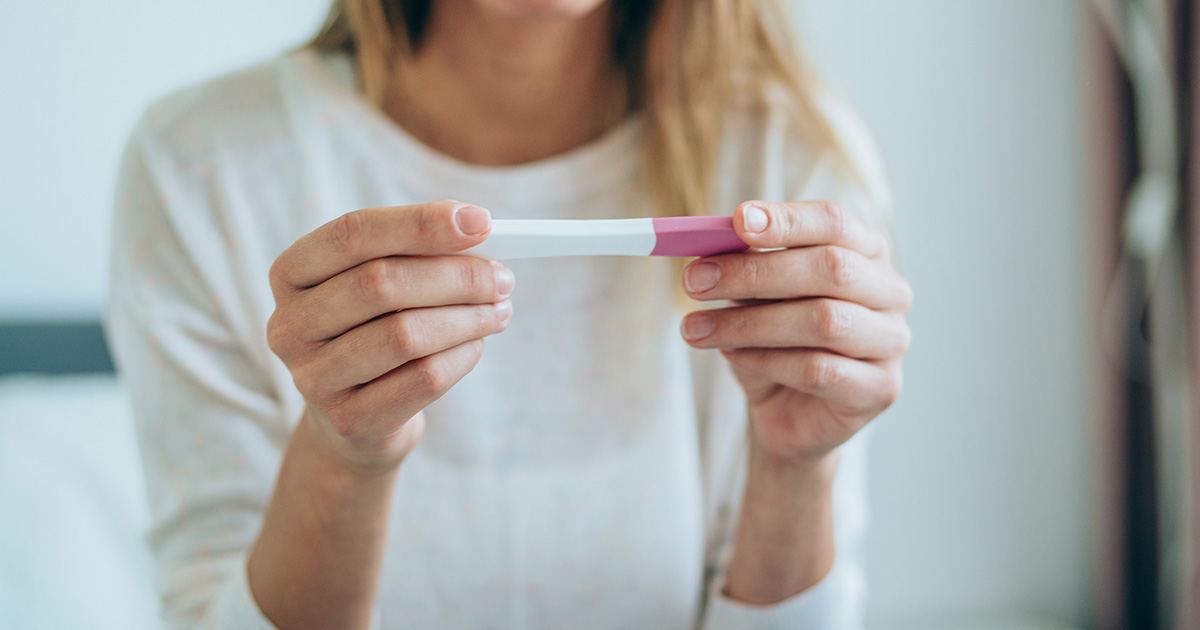
Pregnancy
Summer Pregnancy Survival Guide: A Candid Consult
Let’s face it, being pregnant during the summer months can be rough. Your body temperature is already elevated during pregnancy, and the summer heat can make things even more uncomfortable.
In this edition of Candid Consult, Dr. Jessica Arendal of Axia Women’s Health Garden State OB/GYN answers some FAQs and shares her personal tips for beating the heat and staying healthy throughout your summer pregnancy.
Q: Are there heat-related health conditions pregnant women should watch out for?
A: The biggest concern we have during the summer months is the risk of dehydration. I encourage my pregnant patients to drink way more water than they think they need to, especially during the summer. It’s common to feel dizzy, light-headed, and faint during pregnancy if you don’t have proper hydration. It’s important to stay ahead of it, by hydrating as much as possible.
It’s also possible that dehydration can cause Braxton Hicks contractions (or false labor contractions). When a woman’s body is dehydrated, she secretes a hormone that looks like oxytocin, which can trick the body into thinking it’s going into labor. If this happens, I’ll advise my patients to sit down, rest, and drink two big glasses of water. If the contractions do not subside, then we may bring her into the office for evaluation.
Women may also notice increased swelling, which is completely normal and nothing to be worried about. If the swelling becomes bothersome, it’s best to lay down and keep your feet elevated.
Q: Is it safe to travel during the summer months when pregnant?
A: As always, I would recommend discussing any travel plans with your provider first. If you are considering traveling, it’s generally best to do this during the second trimester when you’re feeling well. We advise women against traveling longer distances when they are 36 weeks pregnant or more.
If you’re traveling by airplane or car, it’s important to take frequent breaks and to get up and stretch in order to avoid developing blood clots. To further reduce your risk of blood clots, it’s important to drink lots of fluids, wear loose-fitting clothing and compression stockings.
It’s also best to avoid vacation activities that could pose risk of accidents like jet skiing, boating, as well as roller coasters.
Finally, it’s important to make sure you’re staying safe against the coronavirus. Pregnant women may choose to get a COVID-19 vaccine to reduce the risk of severe illness from the virus.
Q: Is It safe to wear sunscreen during pregnancy?
A: Not only is it safe to wear sunscreen during pregnancy, but it is also recommended. Broad-spectrum sunscreens provide protection against UVA/UVB rays and can help prevent hyperpigmentation or dark skin patches, which is common during pregnancy. You can also protect your skin by wearing light, loose-fitting clothing in breathable fabrics like linen.
Q: Is it safe to exercise outside during a summer pregnancy?
A: If you were physically active before pregnancy, there’s no risk in continuing your exercise routine as long as you are doing so safely. A great option for working out outdoors is swimming. This can provide a safe, effective workout for your core while also keeping you cool!
Q: Are there certain summer foods that are good to eat when pregnant?
A: It can be difficult to find foods you want to eat if you’re feeling nauseous. During the summer months, I recommend putting lemon in your water and generally eating more fruits and vegetables that have a high water content and can provide hydration.
You can also make your own healthy popsicles at home with fruit or opt for a sugar-free option from the supermarket.
Q: Do you have any tips for getting better sleep during the hot summer months?
A: Sleep is one of the most challenging things when pregnant. During the summer, you may want to keep your bedroom slightly cooler by turning up the air conditioning or sleeping next to a fan. I’ve also found that sleeping on your side with a pillow between your legs can help alleviate back or groin pain. And of course, if you’re sleeping with a partner, don’t be afraid to speak up and voice any needs you have.
 Author: Jessica Arendal, MD, physician with Garden State OB/GYN of Voorhees
Author: Jessica Arendal, MD, physician with Garden State OB/GYN of Voorhees
To schedule a consult with Dr. Arendal or one of her teammates at Garden State OB/GYN, schedule online or call (856) 424-3323.
Similar Articles

February 16, 2026
Understanding Your Pregnancy Odds: A Guide to Fertility in Your 20s, 30s, and 40s
Pregnancy
Read More
April 7, 2025

August 22, 2024
































